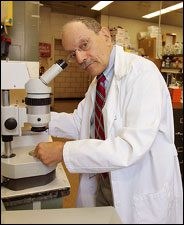Professor Michael Gershon from the United States has reiterated the idea that could disrupt traditional perceptions of human brain function. Indeed, humans have two eyes, two hands, two legs, and two brains: one in the head and the other in… the abdomen!
|
|
|
Professor Michael Gershon (Photo: cnsfoundation) |
Professor Gershon is a well-known figure in the global scientific community. He leads the Department of Anatomy and Cell Biology at Columbia University (New York, USA). He is one of the pioneers in the new field of science specializing in the nervous system in the gut and has diligently sought new methods to study human beings.
Evidence supporting Professor Gershon’s new theory includes various states or disorders, such as anxiety, psychological crises, ulcers, gastrointestinal disorders, and Parkinson’s disease – in summary, these are manifestations that occur both in the skull and in the gut… The symptoms of these diseases manifest in the brain within the skull as well as in the brain within the gut, reflecting each other like two facing mirrors, showing how psychological issues are closely linked to gastrointestinal and stomach problems. Who among us hasn’t felt a tightening in the stomach during moments of psychological stress?
Gershon has published the widely popular book “The Second Brain.” He now reaffirms the hypothesis that the enteric nervous system is not merely a passive collection of neurons and nerves that execute commands sent down from the brain, but rather a unique network capable of performing its own tasks.
Interestingly, the gut continues to function even when it is disconnected from the brain and spinal cord. “The Second Brain” is fully capable of processing all issues related to digestion with tools that are as “legitimate” as those of the brain. This further demonstrates the brilliance of the evolutionary process: instead of burdening the brain with concerns for remote regions, this task is delegated to the central nervous system “deployed” right at the local level.
Similar to brain number one, brain number two is also a vast data bank that stores millions of real-world experimental results, creating a super-functional capability that can respond to countless emerging situations in the digestive state. The second brain always knows how to extract the most nutritious elements from what the body has absorbed.
Nguyễn Thụ



















































